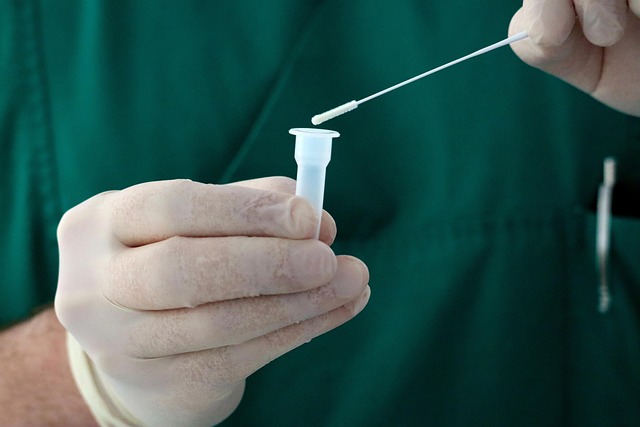Vitamin D deficiency, prevalent in the UK during winter, poses significant health risks including muscle weakness, bone pain, cardiovascular diseases, and increased cancer risk. Home blood testing for Vitamin D offers a convenient way to monitor levels (measured in nmol/L) between 50-125 for optimal health; below 50 indicates a deficiency. Sunlight is key for synthesis but factors like season, time of day, cloud cover, and skin tone affect this process. Regular home testing enables individuals to track progress, identify deficiencies, and make informed decisions regarding sun exposure, diet, or supplements under professional guidance.
In the UK, vitamin D deficiency affects a significant portion of the population, with potential risks to overall health. This article explores the importance of monitoring your vitamin D levels through at-home blood testing. We’ll delve into the symptoms and risks associated with deficiency, highlight the advantages of home testing, and guide you on interpreting results for optimal wellness. Embrace the convenience of UK-based home blood tests for a proactive approach to your health.
Understanding Vitamin D Deficiency: Symptoms and Risks in the UK
Vitamin D deficiency is a growing concern in the UK, with many individuals unaware of its potential impact on overall health. This condition occurs when the body doesn’t produce enough vitamin D or cannot effectively utilise it, often due to limited sun exposure. In the UK, where sunlight is less abundant during certain seasons, this issue is particularly prevalent.
Symptoms may include muscle weakness, bone pain, and an increased risk of fractures. Long-term effects can be more serious, with research suggesting a link between vitamin D deficiency and various health risks, including cardiovascular diseases, weakened immune function, and an elevated chance of developing certain types of cancer. A simple UK blood test at home can determine vitamin D levels, allowing individuals to take proactive steps towards optimal wellness by addressing any deficiencies through dietary changes or supplementation.
The Benefits of Home Blood Testing for Vitamin D Levels
Home blood testing for Vitamin D levels offers a convenient and accessible way to monitor your overall wellness in the UK. It allows individuals to take control of their health by providing an easy, quick, and private method of checking vitamin D levels right at home. This is particularly beneficial for those who may struggle to access healthcare services regularly or prefer the comfort and discretion of testing in their own space.
Such tests provide accurate and reliable results, enabling people to make informed decisions about their health. By identifying potential deficiencies early on, individuals can take appropriate measures to enhance their vitamin D levels through diet, sunlight exposure, or supplements, thereby promoting better bone health, immune function, and overall well-being.
Monitoring Your Progress: Interpreting Test Results and Maintaining Optimal Health
Regularly monitoring your Vitamin D levels is a proactive step towards maintaining overall wellness, especially in the UK where exposure to sunlight may vary throughout the year. Interpreting test results is a key part of this process. A blood test at home, often recommended by healthcare professionals, provides valuable insights into your current Vitamin D status. Levels are typically measured in nanomoles per litre (nmol/L). According to NHS guidelines, optimal levels range between 50-125 nmol/L, while anything below 50 nmol/L is considered low and may indicate a potential deficiency.
Maintaining these optimal levels involves understanding that diet alone might not be sufficient. Sunlight exposure remains a primary natural source of Vitamin D. However, factors like season, time of day, cloud cover, and skin tone can significantly impact synthesis. Therefore, regular testing allows individuals to track their progress, identify potential deficiencies, and make informed decisions. This may include adjusting sun exposure, incorporating rich food sources of Vitamin D (such as fatty fish or fortified foods), or considering supplements under professional guidance.
In the pursuit of overall wellness, a UK blood test at home for vitamin D levels is a powerful tool. By understanding the benefits of home testing and interpreting results accurately, individuals can take control of their health. Regular monitoring allows for proactive management of vitamin D deficiency, addressing symptoms and mitigating associated risks. This simple step enables folks to make informed decisions and foster optimal health outcomes.
